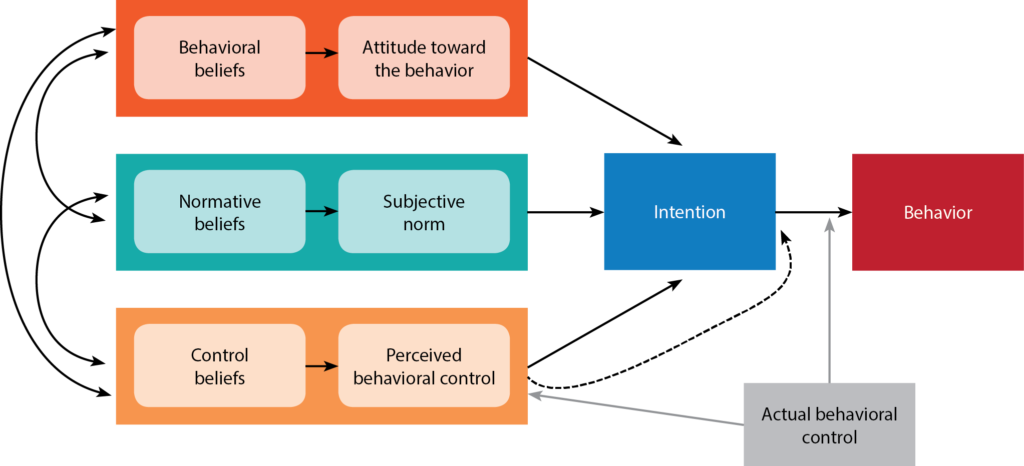The Theory of Planned Behavior
 According to the Theory of Planned Behavior, behavior is influenced by three factors:
According to the Theory of Planned Behavior, behavior is influenced by three factors:
- Attitude toward the desired behavior: This is determined by the individual’s belief that a beneficial outcome will occur if a particular behavior (the desired behavior) is practiced.
- Subjective norms: These relate to the individual’s belief about what people in their reference groups (peers, family or social networks) think about the desired behavior as well as their motivation to comply with these norms.
- Perceived behavioral control: This refers to the individual’s belief about his or her capacity to practice the desired behavior.
The theory of planned behavior acknowledges the individual’s role in changing a behavior (attitude and perceived ability), as well as the influence of significant others (subjective norms) (Ajzen, 1991; Glanz & Rimer, 2005). In particular, this theory tells us that interventions should:
- Highlight the short-term benefits of the desired behavior as this improves attitude toward that behavior
- Target close social networks to promote a desired behavior and improve the individual’s perceived norms

